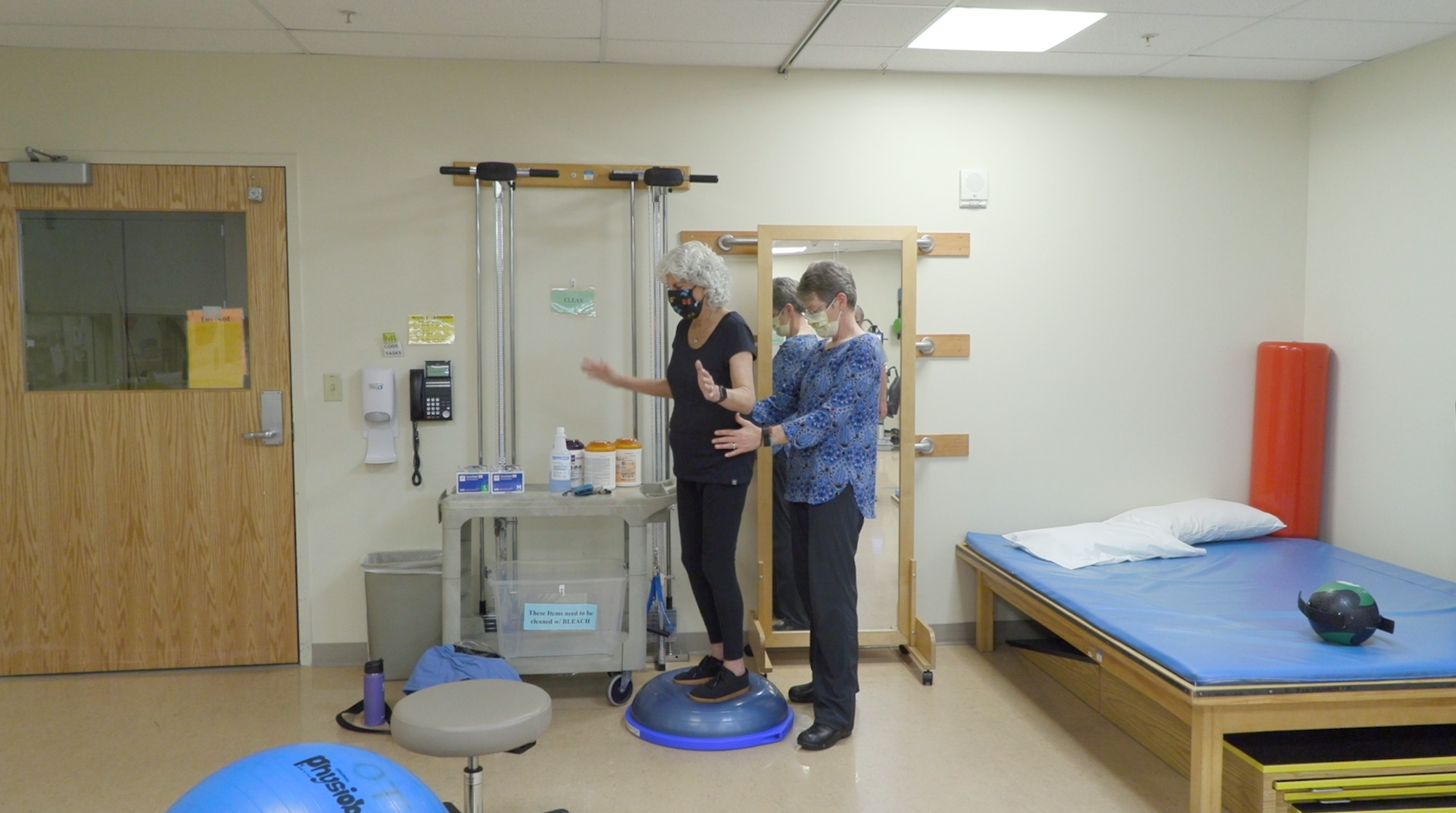After 3 months in the hospital fighting COVID, it's a long walk back for Boulder woman

BOULDER, Colo. — When COVID-19 sent Barbara Gould to the hospital early in the pandemic, she faced a life-or-death battle to breathe.
In three months in various hospitals last year, she spent 65 days on a ventilator and two weeks undergoing a special artificial-lung treatment — as one doctor put it, a "hail Mary" move to save her life.
Now that she's home, months later, the fight isn't over.
Gould is a "long hauler" — someone still battling COVID's impact months after their initial diagnosis.
"It's a challenge to remain positive," the Boulder woman told Rocky Mountain PBS, later adding: "COVID took from me a sense of security."
The long walk back from COVID involves physical therapy to help her feel steady on her feet again and rebuild her muscles.
"Before COVID I was strong," Gould said. "My muscles are weak at this point (but) getting stronger every day."

One of the terrifying aspects of COVID is its unpredictability. Of the 520,000 confirmed cases in Colorado to date, some people have barely felt any symptoms, while others have struggled to widely varying degrees. Almost 30,000 Coloradans have been hospitalized, and nearly 6,500 have died due to COVID.
Of those who make it through an initial acute phase of the disease, some go on to experience various problems for months afterward. Various estimates of the prevalence of long haulers among total COVID cases worldwide range from 10% to 30%.
Some long haulers are people who, like Gould, had severe symptoms initially, while others "appear to be individuals who experienced mild or moderate cases of COVID-19 and weren't hospitalized," says a report from Johns Hopkins University. Symptoms for these long-term sufferers can come and go randomly, like a game of Whac-A-Mole.
In April 2020, weeks after the pandemic began to emerge in the United States, Gould experienced a persistent cough and went into Boulder Community Health hospital with COVID. She struggled to breathe, and was intubated a few days later.
After a few weeks she was airlifted to UCHealth's University of Colorado Hospital in Aurora so Gould could receive venovenous ECMO (short for extracorporeal membrane oxygenation). It's a treatment in which machines do the work of the lungs to allow them to rest. Her blood was pumped from her heart through tubes to an oxygenator device and back into her heart.
"My situation was very, very dire," Gould said. "Some people have said I was the sickest person (with COVID) in Colorado at the time."
The venovenous ECMO treatment typically is reserved for patients with the most-serious, life-threatening respiratory issues. In some cases it's a step leading to a lung transplant. But as Katie Kerwin McCrimmon at UCHealth reports, "nearly all of the COVID-19 patients at UCH who have had ECMO have survived."
After some setbacks, the hail Mary worked. Gould made a recovery and was sent home to a rousing neighborhood welcome.
But Gould said that she felt "cognitive impairment" after her medically-induced coma. Even her voice had changed.
ECMO saved Gould's life, but she said she later learned that "during my time on ECMO, my liver might not have received enough blood, which means I have .. pretty significant scarring that is ... not medically treatable at this time."
She calls her condition "a big wait and see."
Through it all, Gould's husband — Allen Taggart, a retired lawyer — and her grown children have supported her.
"COVID has given to me a different understanding of love, a different understanding of what it is to be in a loving relationship," she said. "My husband and I have always loved each other. This, I feel, has brought us closer together."
And Gould said that her long walk back from COVID has "helped me to see that I have a particular kind of inner strength that I didn't know I had."
